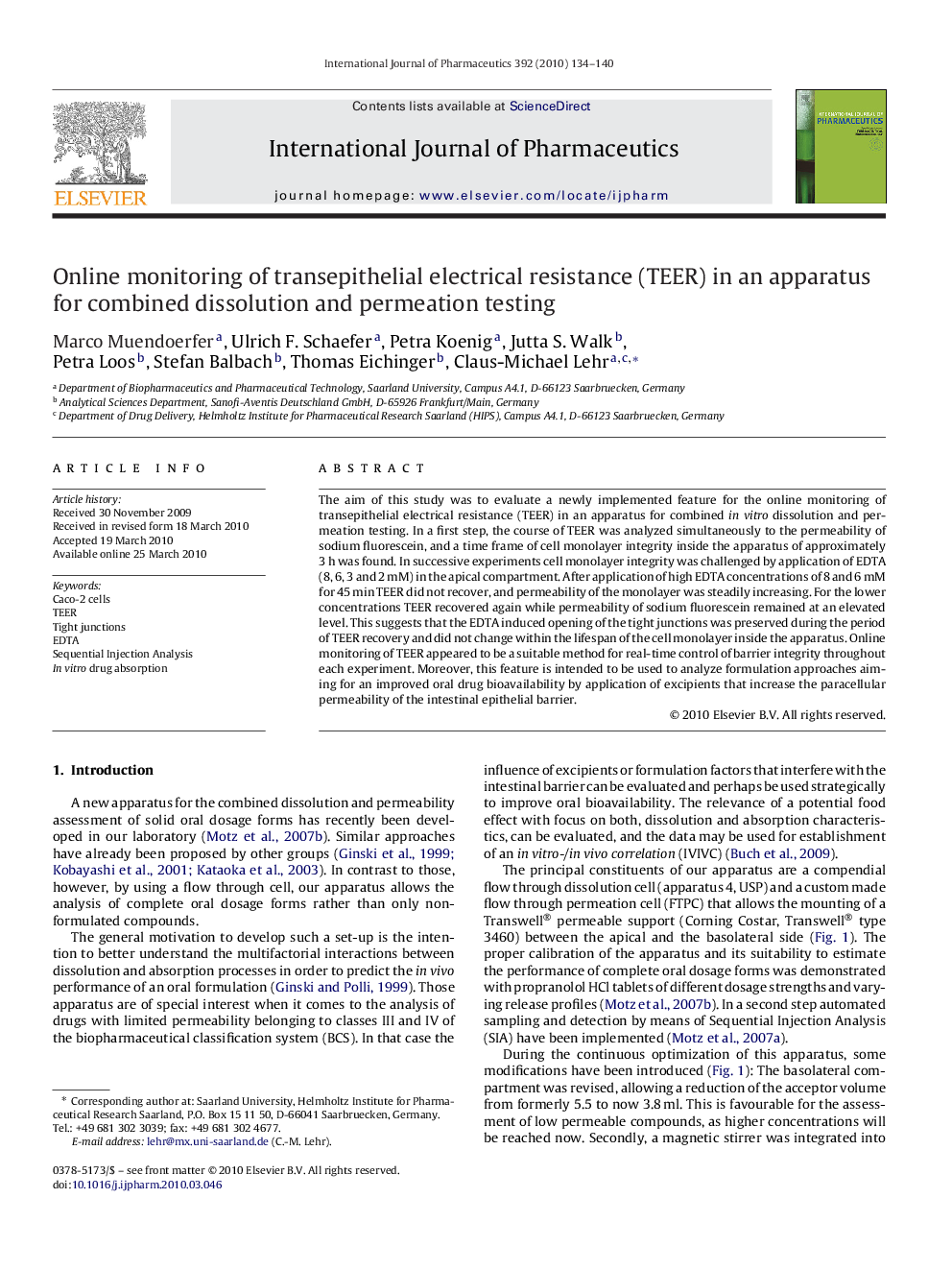| Article ID | Journal | Published Year | Pages | File Type |
|---|---|---|---|---|
| 2504057 | International Journal of Pharmaceutics | 2010 | 7 Pages |
The aim of this study was to evaluate a newly implemented feature for the online monitoring of transepithelial electrical resistance (TEER) in an apparatus for combined in vitro dissolution and permeation testing. In a first step, the course of TEER was analyzed simultaneously to the permeability of sodium fluorescein, and a time frame of cell monolayer integrity inside the apparatus of approximately 3 h was found. In successive experiments cell monolayer integrity was challenged by application of EDTA (8, 6, 3 and 2 mM) in the apical compartment. After application of high EDTA concentrations of 8 and 6 mM for 45 min TEER did not recover, and permeability of the monolayer was steadily increasing. For the lower concentrations TEER recovered again while permeability of sodium fluorescein remained at an elevated level. This suggests that the EDTA induced opening of the tight junctions was preserved during the period of TEER recovery and did not change within the lifespan of the cell monolayer inside the apparatus. Online monitoring of TEER appeared to be a suitable method for real-time control of barrier integrity throughout each experiment. Moreover, this feature is intended to be used to analyze formulation approaches aiming for an improved oral drug bioavailability by application of excipients that increase the paracellular permeability of the intestinal epithelial barrier.
